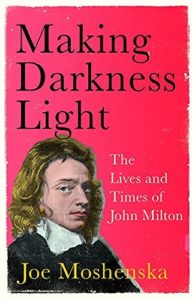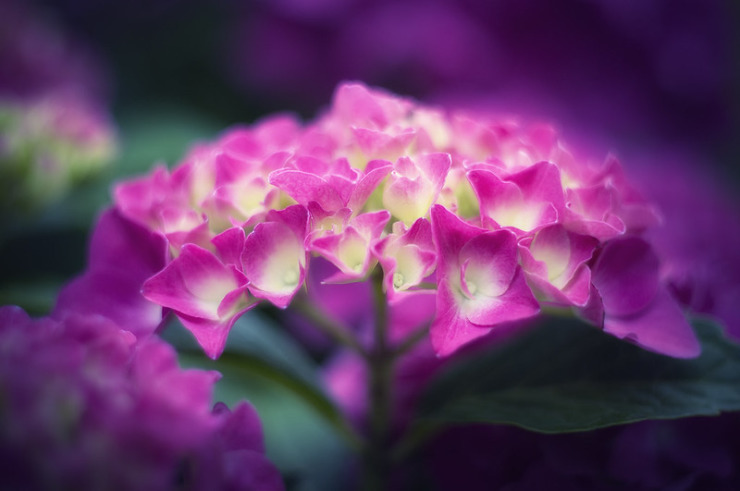Joe Moshenska explores the life of John Milton to make sense of his own life
John Milton (1608–1674) is one of those poets who seem to be largely ignored today. Shakespeare we still read and study; Milton, who was just as brilliant a writer as Shakespeare, comes with baggage, from a contemporary cultural perspective.
For one thing, he was religious. For another thing, he was one of those Puritan types, having even written a poem condoning the execution of Charles I. For a third thing, he served in the British government under Oliver Cromwell, the Lord Protector. Cromwell was so hated by the royalists that, upon the Restoration in 1660, his body was removed from its tomb in Westminster Abbey, hung, beheaded, and thrown into the Thames.
Milton was arrested and imprisoned in the Tower. Yet, since he had written some of the most beautiful poetry in the English language, Charles II relented and freed the blind poet after a few months. Ours was the benefit: Milton’s epics, Paradise Lost and Paradise Regained, still lay ahead, published in 1667 and 1671, respectively.
Joe Moshenska, professor of English literature at University College, Oxford, loves the works of Milton. His study, research, and teaching center in the 1500 to 1700 period in English literature. He received his Ph.D. degree from Princeton University. He’s published Feeling Pleasures: The Sense of Touch in Renaissance England (2014), The Stain in the Blood: The Remarkable Voyage of Sir Kenelm Digby (2016), and Iconoclasm as Child’s Play (2019).

If this is biography, it’s one of the more unusual biographies I’ve encountered. It’s also one of the more profound literary experiences I’ve enjoyed reading. The author explains in the introduction that the book “is not the end point of a process of understanding Milton and his poems. My ideas and opinions about him are not fixed and final: I’m writing not because I’ve made my mind up about him but partly to work out what I think.” He’s drawn to what he calls the puzzles of Milton: the poet could be summarized as a “Christian patriot” who was a beautiful writer, but that would be a disservice to the poet, his work, his life, and to the biographer himself.
What he writes instead is Making Darkness Light.

The young John Milton
Moshenska tells his story of Milton in three parts divided into 11 chapters. In each chapter, we get a snapshot of a key period or event in Milton’s life, starting with his education at the school in St. Paul’s Churchyard and ending with his death. Each snapshot is told in present tense, with the sense of reading a story (technically, this might be called creative nonfiction). Following each biographical story is a discussion of a poem by Milton specific to the time or event.
Both the biographical story and the poetic discussion are a kind of meditation. Thoughts that seem like digressions into the biographer’s own life and thinking are anything but. He’s considering “how my own experiences inform my relationship to Milton, and more generally how our experiences affect the connections we form with artworks.”

Joe Moshenska
He does tell good stories of Milton’s life. While they straddle the border of fiction and nonfiction, they’re grounded in a deep understanding of the context. You learn not only what Milton learned in school, but also about the teacher he had who was famous for his rod of discipline. You learn about his face-to-face meeting with Galileo and the homes where Milton lived in London. And you also learn about Moshenska’s piano playing.
Remarkably, it fits. It hangs together. And, indirectly, Moshenska demonstrates the value of the canon of literature, which by any definition would include John Milton. We read the great works of literature not only for enjoyment, but also to understand ourselves and our own times.
Photo by Hiroyuki Takeda, Creative Commons, via Flickr. Post by Glynn Young.
How to Read a Poem uses images like the mouse, the hive, the switch (from the Billy Collins poem)—to guide readers into new ways of understanding poems. Anthology included.
“I require all our incoming poetry students—in the MFA I direct—to buy and read this book.”
- Poets and Fables: Steven Flint and “The Sun and the Boy” - July 3, 2025
- Poets and Poems: Alison Blevins and “Where Will We Live if the House Burns Down?” - July 1, 2025
- Poets and Poems: Paul Pastor and “The Locust Years” - June 26, 2025


Leave a Reply